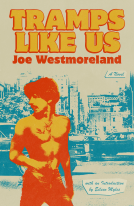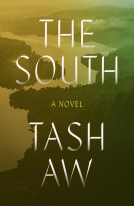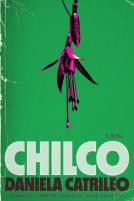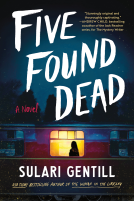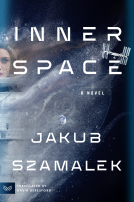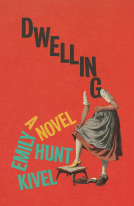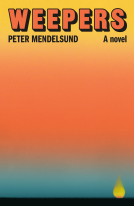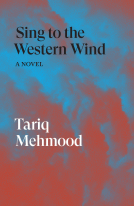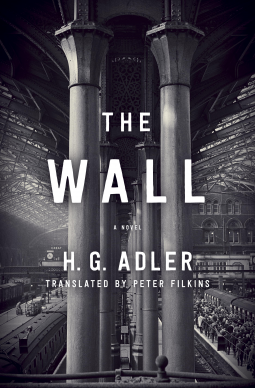
The Wall
A Novel
by H. G. Adler
This title was previously available on NetGalley and is now archived.
Buy on Amazon
Buy on BN.com
Buy on Bookshop.org
*This page contains affiliate links, so we may earn a small commission when you make a purchase through links on our site at no additional cost to you.
Send NetGalley books directly to your Kindle or Kindle app
1
To read on a Kindle or Kindle app, please add kindle@netgalley.com as an approved email address to receive files in your Amazon account. Click here for step-by-step instructions.
2
Also find your Kindle email address within your Amazon account, and enter it here.
Pub Date Dec 02 2014 | Archive Date Feb 24 2015
Random House Publishing Group - Random House | Random House
Description
Compared by critics to Kafka, Joyce, and Musil, H. G. Adler is becoming recognized as one of the towering figures of twentieth-century fiction. Nobel Prize winner Elias Canetti wrote that “Adler has restored hope to modern literature,” and the first two novels rediscovered after his death, Panorama and The Journey, were acclaimed as “modernist masterpieces” by The New Yorker. Now his magnum opus, The Wall, the final installment of Adler’s Shoah trilogy and his crowning achievement as a novelist, is available for the first time in English.
Drawing upon Adler’s own experiences in the Holocaust and his postwar life, The Wall, like the other works in the trilogy, nonetheless avoids detailed historical specifics. The novel tells the story of Arthur Landau, survivor of a wartime atrocity, a man struggling with his nightmares and his memories of the past as he strives to forge a new life for himself. Haunted by the death of his wife, Franziska, he returns to the city of his youth and receives confirmation of his parents’ fates, then crosses the border and leaves his homeland for good.
Embarking on a life of exile, he continues searching for his place within the world. He attempts to publish his study of the victims of the war, yet he is treated with curiosity, competitiveness, and contempt by fellow intellectuals who escaped the conflict unscathed. Afflicted with survivor’s guilt, Arthur tries to leave behind the horrors of the past and find a foothold in the present. Ultimately, it is the love of his second wife, Johanna, and his two children that allows him to reaffirm his humanity while remembering all he’s left behind.
The Wall is a magnificent epic of survival and redemption, powerfully told through stream of consciousness and suffused with daydream, fantasy, memory, nightmare, and pure imagination. More than a portrait of a Holocaust survivor’s journey, it is a universal novel about recovering from the traumas of the past and finding a way to live again.
Praise for H. G. Adler’s novels The Journey and Panorama, translated by Peter Filkins
“The Journey and Panorama . . . are modernist masterpieces worthy of comparison to those of Kafka or Musil.”—The New Yorker
The Journey
“The novel’s streaming consciousness and verbal play invite comparison with Joyce, the individual-dwarfing scale of law and prohibition brings Kafka to mind, and there is something in the hypnotic pulse of the prose that is reminiscent of Gertrude Stein.”—The New York Times Book Review
“A tribute to the survival of art and a poignant teaching in the art of survival . . . I tend to shy away from Holocaust fiction, but this book helps redeem an all-but-impossible genre.”—Harold Bloom
Panorama
“Haunting . . . as remarkable for its literary experimentation as for its historical testimony.”—San Francisco Chronicle
“Panorama should have been the brilliant debut of a major German writer. . . . Under any circumstances, let alone such harsh ones, [Adler’s] accomplishments would be remarkable.”—The New York Times Book Review
“[A] stirring novel . . . expertly and elegantly translated by Peter Filkins.”—Los Angeles Times
Drawing upon Adler’s own experiences in the Holocaust and his postwar life, The Wall, like the other works in the trilogy, nonetheless avoids detailed historical specifics. The novel tells the story of Arthur Landau, survivor of a wartime atrocity, a man struggling with his nightmares and his memories of the past as he strives to forge a new life for himself. Haunted by the death of his wife, Franziska, he returns to the city of his youth and receives confirmation of his parents’ fates, then crosses the border and leaves his homeland for good.
Embarking on a life of exile, he continues searching for his place within the world. He attempts to publish his study of the victims of the war, yet he is treated with curiosity, competitiveness, and contempt by fellow intellectuals who escaped the conflict unscathed. Afflicted with survivor’s guilt, Arthur tries to leave behind the horrors of the past and find a foothold in the present. Ultimately, it is the love of his second wife, Johanna, and his two children that allows him to reaffirm his humanity while remembering all he’s left behind.
The Wall is a magnificent epic of survival and redemption, powerfully told through stream of consciousness and suffused with daydream, fantasy, memory, nightmare, and pure imagination. More than a portrait of a Holocaust survivor’s journey, it is a universal novel about recovering from the traumas of the past and finding a way to live again.
Praise for H. G. Adler’s novels The Journey and Panorama, translated by Peter Filkins
“The Journey and Panorama . . . are modernist masterpieces worthy of comparison to those of Kafka or Musil.”—The New Yorker
The Journey
“The novel’s streaming consciousness and verbal play invite comparison with Joyce, the individual-dwarfing scale of law and prohibition brings Kafka to mind, and there is something in the hypnotic pulse of the prose that is reminiscent of Gertrude Stein.”—The New York Times Book Review
“A tribute to the survival of art and a poignant teaching in the art of survival . . . I tend to shy away from Holocaust fiction, but this book helps redeem an all-but-impossible genre.”—Harold Bloom
Panorama
“Haunting . . . as remarkable for its literary experimentation as for its historical testimony.”—San Francisco Chronicle
“Panorama should have been the brilliant debut of a major German writer. . . . Under any circumstances, let alone such harsh ones, [Adler’s] accomplishments would be remarkable.”—The New York Times Book Review
“[A] stirring novel . . . expertly and elegantly translated by Peter Filkins.”—Los Angeles Times
Available Editions
| EDITION | Hardcover |
| ISBN | 9780812993066 |
| PRICE | $30.00 (USD) |
